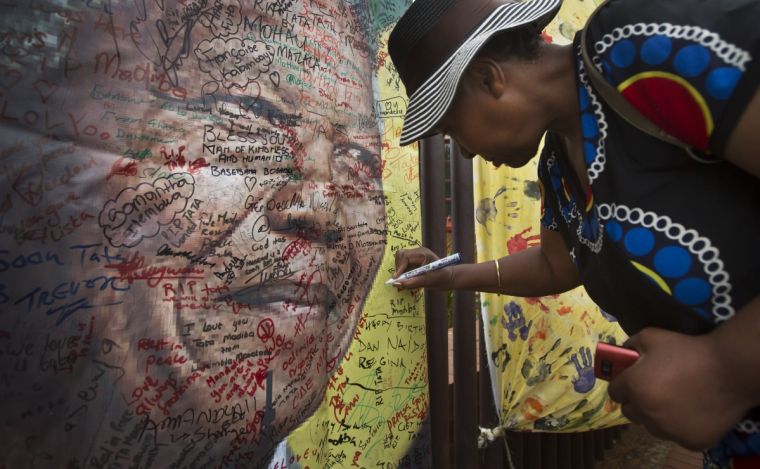Mandela 'embodied many of the values Christ stood for'

CT: What's been the atmosphere been like following Mandela's death?
RA: Everyone is affected somehow, but there is a mood of celebrating Mandela's life too. It's mourning as well, but the death of someone of his stature was not unexepected.
CT: What do you remember most prominatly about Mandela and what he fought for? Was there a moment that was particularly resonant with you?
RA: I remember the Soweto massacre in the mid-seventies, I was a quite young schoolboy then. And that was when I began to understand Mandela and who he was and that he was in jail. The news and presence of him in the media at that time became very strong. I could then imagine the kind of person he was, and then for this man to come out of jail and become the president of South Africa ... I could almost go into blasphemy here, but for the whole continent of Africa, it seemed that Mandela became like Christ in that he embodied many of the values that Christ stood for. He went to jail and came out as one of the world's greatest.
CT: What is his single largest legacy in your view?
RA: I think it is the bringing of reconciliation in South Africa. Mostly between the blacks and the whites, but also among blacks as well. The whole country could have flown off the handle, but because of Mandela there was a huge amount of reconciliation, because of his ability to seek out peace. That is what stands out to me the most.
CT: Is there a way that Mandela's actions and his death have affected Christians specifically?
RA: It a very interesting question. Mandela is very much a secular person, not known much for his Christianity. But the values he demonstrated were very Christian. God cannot live among us without a witness, and so for me that's the message. God used Mandela, even if he wasn't seen for his actions as Christian. His Christian background confirms who he was, and his Weslian schooling, and all those influences clearly shaped his decisions. God can use anybody. God used him to demonstrate the values of God.
CT: How do you think South Africa will manage without him now? Is it going to be harder to maintain his vision without him?
RA: Well, his death was expected, and while some people are pessimistic and fear South Africa will slide back into chaos, I do not share their view. Mandela, to his credit, set up the insitutions that are working and then he stood aside, and they continued to work without them. He hasn't been directly in contact with them for some time. Of course in the rest of Africa, his legacy remains. The values he stood for will inspire others. If he had died in office, then there would have been chaos. But there has been a second president after Mandela. The present president is not there with Mandela's help. There are checks and balances in place, and South Africa will continue to move on.











